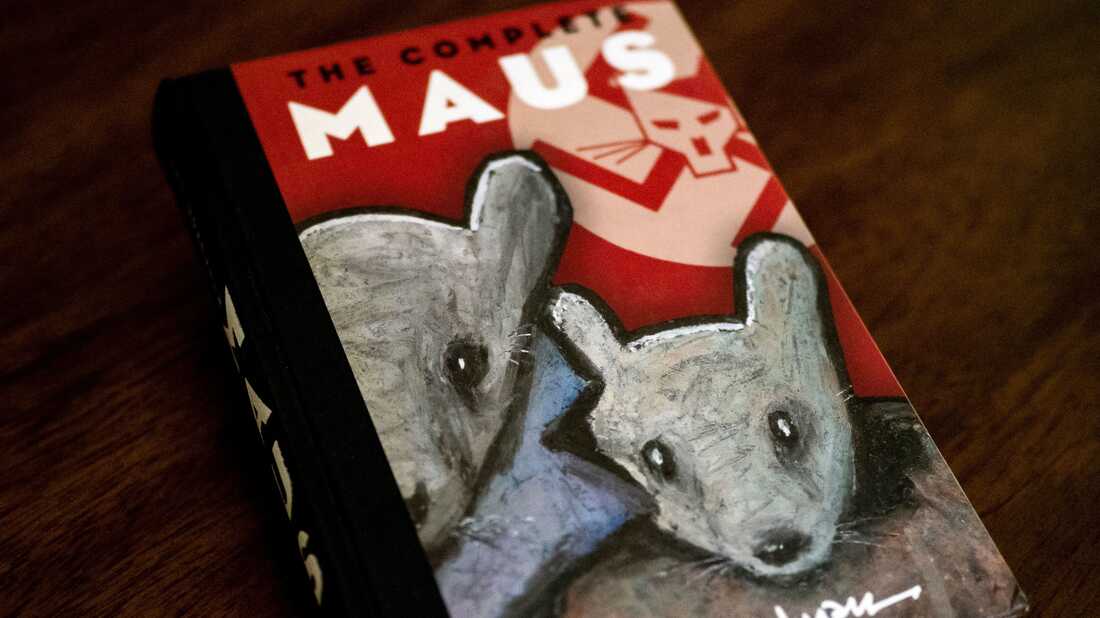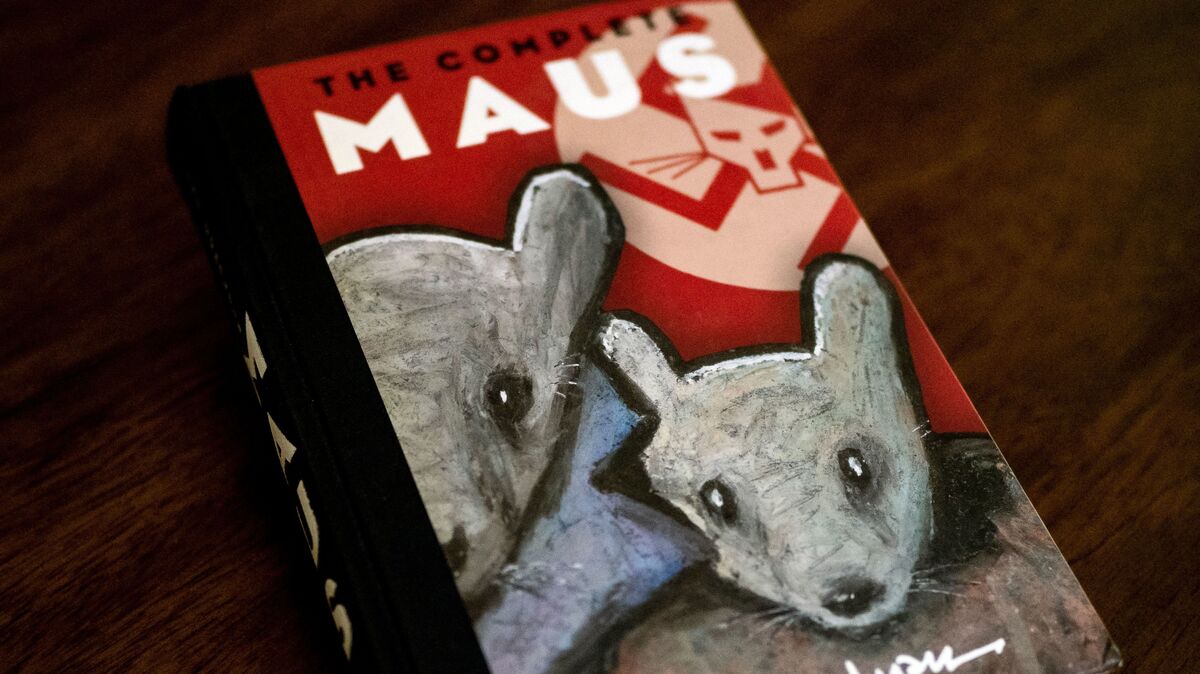
Early in 2022, a school board in Tennessee voted to remove the award-winning 1986 graphic novel on the Holocaust, "Maus," from local student libraries. Maro Siranosian/AFP via Getty Images hide caption

Early in 2022, a school board in Tennessee voted to remove the award-winning 1986 graphic novel on the Holocaust, "Maus," from local student libraries.
Maro Siranosian/AFP via Getty ImagesThe movement to ban books from public school reading lists is not new, but lately it's been gaining momentum throughout the country. In part, because fights over children and schools is a tried and true political tool.
Revida Rahman, with One WillCo, discusses efforts to ban books in her children's school district in Williamson County, Tennessee and how this just the newest iteration of parental outrage on display.
And Elizabeth Bruenig, staff writer for The Atlantic, explains the political benefit of arguments over masks, critical race theory and book bans at schools. Especially as the U.S. nears midterm elections.
Email us at
This episode was produced by Lee Hale. It was edited by Fatma Tanis and Patrick Jarenwattananon. Our executive producer is Cara Tallo.

 Live Radio
Live Radio